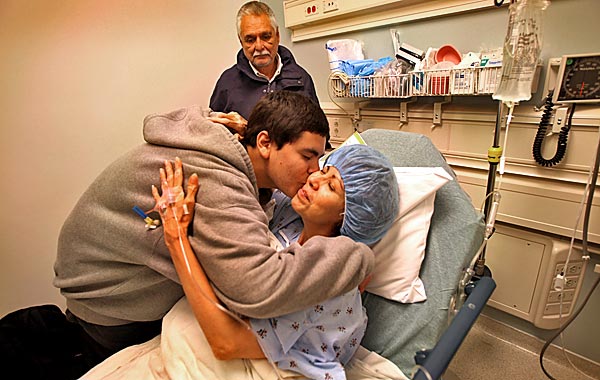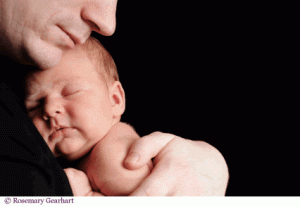Published: August 22, 2010

Before surgery, Gloria Lucio, 57, who has Alzheimer’s, gets a hug and kiss from her son, Valentin, 18, as her husband, Don Jones, looks on. She is part of a clinical trial at UCLA Medical Center in which holes were drilled in her skull and either an experimental drug or placebo was injected into her brain. Link to view photos
Source: LA Times
Published: August 17, 2010
 Psychological stress in middle age could lead to the development of dementia later in life, especially Alzheimer’s disease, reveals research from the University of Gothenburg, Sweden. Based on data from a study which followed women for 35 years, this is the first research in Sweden to indicate a link between stress and dementia.
Psychological stress in middle age could lead to the development of dementia later in life, especially Alzheimer’s disease, reveals research from the University of Gothenburg, Sweden. Based on data from a study which followed women for 35 years, this is the first research in Sweden to indicate a link between stress and dementia.
The research, published in prestigious scientific journal Brain, is based on a major population study of women from Gothenburg. A representative sample of women were examined for the first time in 1968 when aged between 38 and 60, and then re-examined in 1974, 1980, 1992 and 2000.
A question about psychological stress was included in the 1968, 1974 and 1980 surveys and was answered by 1,415 women. [continue reading…]
Published: August 12, 2010
 Sons who have fond childhood memories of their fathers are more likely to be emotionally stable in the face of day-to-day stresses, according to psychologists who studied hundreds of adults of all ages.
Sons who have fond childhood memories of their fathers are more likely to be emotionally stable in the face of day-to-day stresses, according to psychologists who studied hundreds of adults of all ages.
Psychology professor Melanie Mallers, PhD, of California State University-Fullerton presented the findings Thursday at the 118th Annual Convention of the American Psychological Association.
“Most studies on parenting focus on the relationship with the mother. But, as our study shows, fathers do play a unique and important role in the mental health of their children much later in life,” Mallers said during a symposium focusing on social relationships and well-being. [continue reading…]
Published: August 10, 2010
Researchers report that a spinal fluid test can be 100 percent accurate in identifying patients with significant memory loss who are on their way to developing Alzheimer’s disease.
Although there has been increasing evidence of the value of this and other tests in finding signs of Alzheimer’s, the study, which will appear in the Archives of Neurology, shows how accurate they can be. The new result is one of a number of remarkable recent findings about Alzheimer’s.link to read more
Source: New York Times



